The 5 Step Guide: How to Become a Professional Voice Actor
Table of Contents
-
How Do You Become a Professional Voice Actor?
- DIY Hacks For Better Acoustics
- Buyer Beware
- Affordable Studio Setup
- Voiceover Demo Requirements:
- Make Sure You’re Ready
- Measure Twice, Cut Once
- Frequently Asked Questions
- Is it hard to become a voice actor?
- Can anybody become a voice actor?
- Do you need a good voice to become a voice actor?
- How do I find voice acting jobs?
- Conclusion
- Do you have questions or comments about how to become a voice actor?
How Do You Become a Professional Voice Actor?
Have you been told you have a great voice? Are you looking for income with a flexible schedule? You might have the potential to become a professional voice actor. This simple guide will explain the fundamentals you need to know.
Basically, to become a professional voice actor, you’ll need a quiet space, time to practice, a good microphone, a demo reel, and an agent.
Let’s look at this in more depth.
- Make sure you have somewhere quiet to record
The most important element you need to record professional voiceover is a quiet environment.
Think of it like this…
- An experienced voice actor recording in a soundproof studio with a decent microphone is going to do a good job.
- That same voice actor using a fancy $3,000 dollar mic in an acoustically untreated room with lots of echo, a noisy air conditioner rattling in the background and the hum of the fluorescent lights overhead is going to sound terrible.
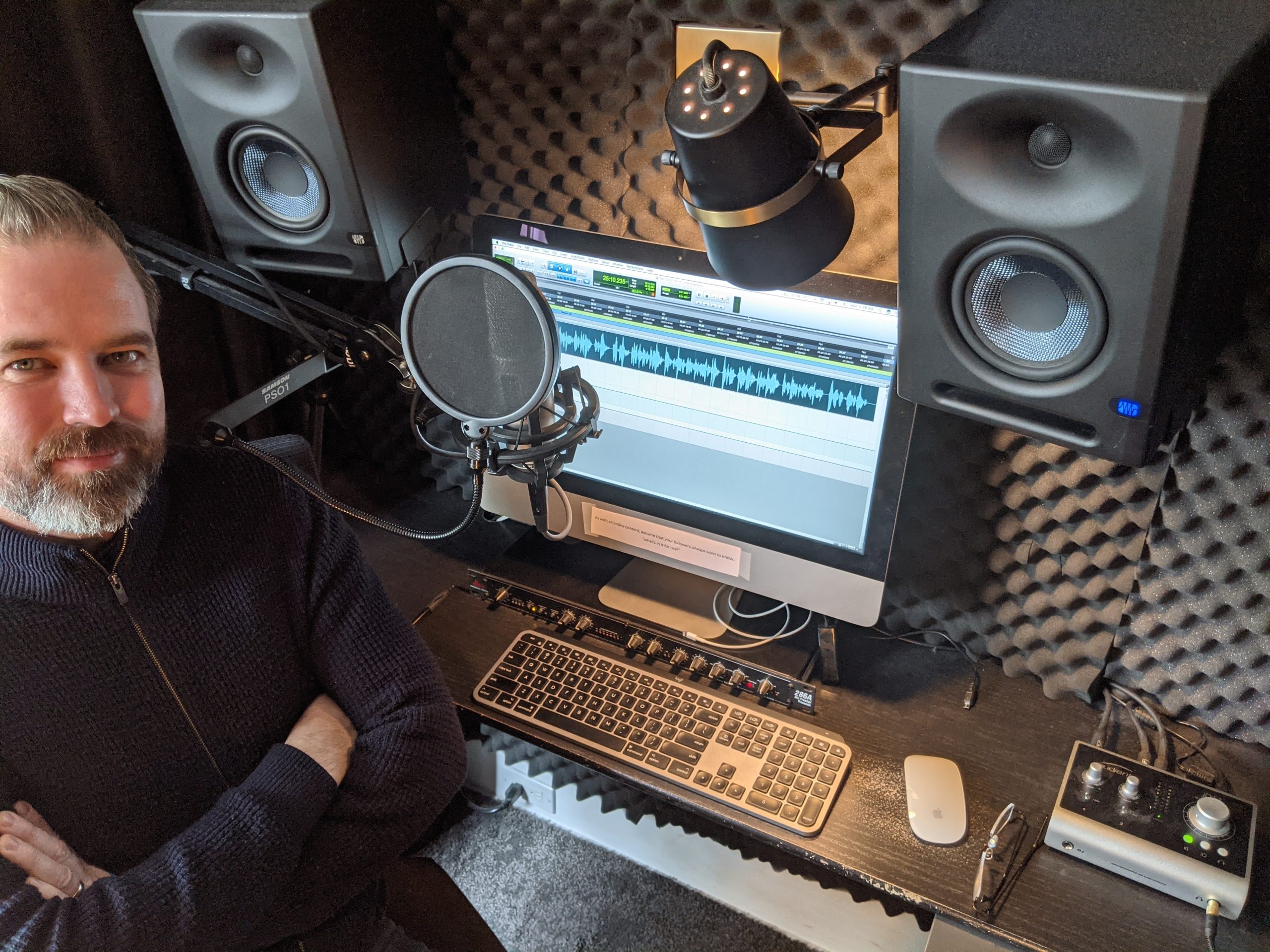
DIY Hacks For Better Acoustics
You can set up a quiet recording space very affordably. Many professional voice actors start out by pushing coats apart in the closet and putting a mic in the middle. Other hacks that can help include hanging a thick blanket on the wall to dampen the room’s acoustics, or strategically placing pillows in the corners to create what are known as “bass traps” to avoid a muddy sound.
You’d be surprised how many big budget Superbowl ads have used voiceover recorded in a hotel room with the voice talent crouched down in front of a fort they’ve made from couch cushions.
To hear what professionally recorded voiceover sounds like, listen to the demos here.
- Practice recording yourself
Learning how to do voiceover professionally takes time, so start by listening to commercials and copying them. For example, record yourself on your phone using one of the many free apps and see how close you can get to mimicking the original. Add inflections in different places and hear how it affects the read. Learn how to “close a sentence” by going down in tone on the last words. Try yelling, and try whispering. Try doing the same commercial faster without sounding rushed.
Your goal is to be able to read a script cold; meaning once you book your first VO session, you’ll be able to step into the booth, get into character on the spot and make the words jump off the page like they’re your own.
Buyer Beware
Some people choose to hire a voiceover coach. There are good ones, but there are also bad ones – and their rates vary wildly. If you do choose to work with a voice coach, do some digging on social media voiceover groups and ask people if they have recommendations.
- Invest in a good-quality microphone
To compete with the professionals, you’re going to need a good microphone. Using your laptop or phone to record audio will sound unprofessional.
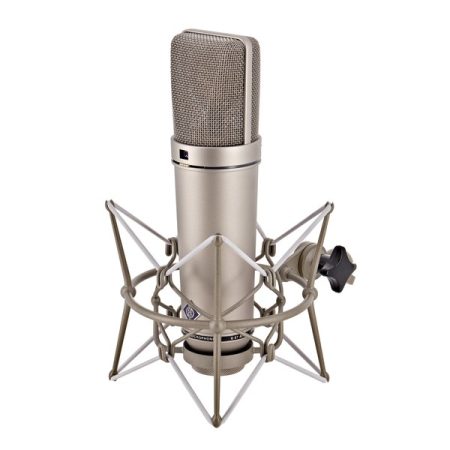
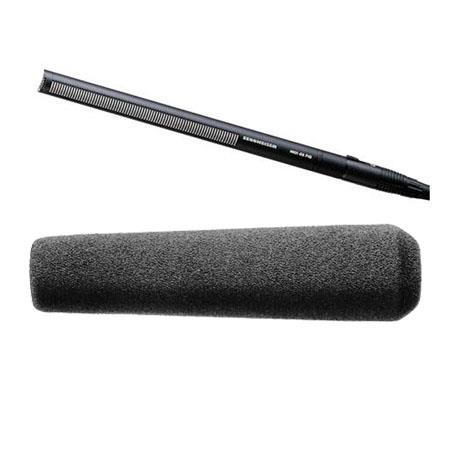
The gold standard when it comes to studio mics includes heavy hitters like the Neumann U87 and Sennheiser MKH 416, as shown above. Another worth considering is the Rode NT2A, that offers three polar patterns and switchable pad and a low-cut filter. These are excellent microphones but can cost many thousands of dollars and they use an XLR three pin connection that requires an interface called a pre-amp. This is impractical for most people starting out.
Affordable Studio Setup
If you’re on a tight budget, there are some excellent USB microphones available, and they don’t require an interface – they plug directly into your computer.
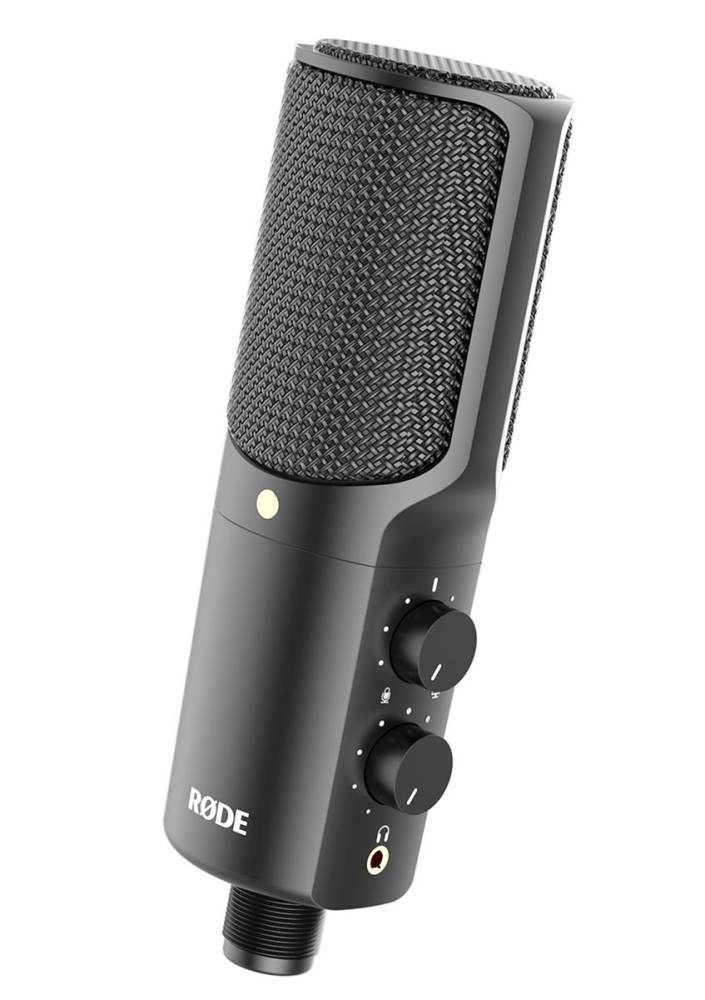
Personally, I recommend the Rode NT-USB. I bought one so that I can record while I’m on the road. There are more affordable options but remember, you get what you pay for.
You’ll need software to record and edit your voice (a simple audio editor, Audacity is popular and free), and a decent pair of headphones. Side note, you shouldn’t use your home speakers to listen back to your recordings – they’re often designed to boost the bass or enhance the mids and highs. Studio monitors don’t color the sound and provide a more accurate playback of the recording.
- Make a demo reel
Once you’ve practiced sufficiently and feel you have enough skill and confidence, it’s time to put together a demo reel. This will essentially be your business card and anyone interested in working with you from Toronto, to Los Angeles, or Dubai will want to hear how you sound and what you’re capable of performing in the studio.
Voiceover Demo Requirements:
- Needs to grab the listener’s attention and quickly showcase your range
- Should be somewhere between 60 to 90 seconds long
- Must demonstrate how dynamic you are, without making the listener work for it
If you’re creating a commercial / narration demo for example, it might start with a high-energy clip for a car dealership where “everything must go, go, go!!!” and then shift gears to a commercial for baby formula for newborns that’s so emotional it might make the listener cry. If you’re aiming to do cartoons, you’ll need to create a separate character / animation demo – don’t mix the two.
It is possible to record and produce your own demo but unless you’re a certified sound engineer or have relevant experience, this is something you should consider best left in the hands of the pros. A casting director will spot an amateur voice demo from a mile away and quickly dismiss it, which in turn will dismiss any chances you have of landing the job.
Make Sure You’re Ready
We talked briefly about voiceover coaches. Some of them offer a voiceover demo reel at the completion of their course. Here’s what you need to know; you need to be able to recreate whatever you put on your demo in studio, without the aid of a coach and multiple edits. Sure, even the pros flub a line or two but if your demo was the result of a week’s worth of tailor-made scripts recorded and re-recorded until there was finally usable take, and you’re not sure if you’d be able to replicate that in a studio while a producer, agency rep and several other onlookers stand by watching, then paying that coach was not a worthwhile investment. Practice some more and find a producer who will be brutally honest with you.
- Get a voiceover agent
You’ve toiled, you’ve put in the hard work, you have a great voiceover demo that accurately demonstrates the great work you’re capable of doing. Now it’s time to shop that demo around.
Whoever you sign with, they’re going to expect you to be able to walk into a studio you’ve never been to before and read a script the producer has just handed you – and nail it.
They’re also going to take a cut. That’s fine. That’s normal. A reputable voiceover agent will take between 15% to 20% commission. Beware: if a potential agent asks you for a fee upfront, consider that a warning sign.
Measure Twice, Cut Once
Check the roster before approaching an agency. Is there already someone on there who sounds very similar to you? They probably won’t be interested in your submission. So try to find voiceover agencies with small rosters because the fewer talent featured, the more jobs each will book.
Do your homework. Check the agency’s website to make sure they’re accepting demos, and don’t be disheartened if it takes a while. Be persistent, and be patient.
Frequently Asked Questions

Is it hard to become a voice actor?
Yes. First of all, it’s important to realize that it’s a crowded field. Second, it takes time to get good enough to compete with the more experienced talent out there.
Can anybody become a voice actor?
Yes, anybody can become a voice actor but that doesn’t mean they’ll become a successful voice actor. To do voiceover professionally, you’re going to need a quiet place to record, a good mic, some technical know-how and lots of practice.
Do you need a good voice to become a voice actor?
No, you don’t need a good voice, per se, but you do need a good ear. Professional voiceover requires acting. Voice talent need to be able to get into character and make it sound believable, as if it’s their own words coming out of their mouth.
If a producer were to ask you to read it 3% slower, would you be able to? Can you make the script sound like you’re not reading off a piece of paper?
Anyone can read a script. A voice actor can make you believe the words they’re saying.
How do I find voice acting jobs?
There are several different ways to find work as a voice actor.
- Direct marketing
Google is your friend, use it to reach out to studios and production houses. With this in mind, make sure they clearly say on their site that they do voice work though. This is a very competitive industry – companies can get bombarded by hungry talent and you want them to be thrilled you reached out, not annoyed.
- Pay-to-Play Sites
There is some controversy surrounding pay-to-play (P2P) sites. The dominant ones have been accused of charging clients high rates and then paying voice talent something considerably more modest. Unethical, maybe. A good way to get some practice if you’re new to the market? Definitely. As a matter of fact, some established talent make good money from these sites but don’t forget – you have to pay a subscription fee for the privilege of auditioning, and it can range from hundreds to thousands of dollars per year.
- Get an Agent
Arguably, the best source of work is through representation with a credible agent. There are lots of agents out there though, so do your research and make sure there’s room on their roster for you. Target the ones that don’t have any demos that sound like you.
Conclusion
You now know what you need to become a voice actor. It is a very competitive market, but there is a lot of work out there from TV, radio and web commercials to explainer videos, eLearning, IVR / on-hold phone messaging, long-form TV series narration, video games and in-flight entertainment.
Finally, remember that although it can undoubtedly be a lot of fun sometimes, this is a serious business. In particular, maintaining a high level of professionalism will help you stand out from the crowd. Impress agents with how quickly you can turn around an audition. Be prompt and polite when working with clients directly. It is possible to develop long-term relationships and that is key to sustaining a steady income from voice work.
Do you have questions or comments about how to become a voice actor?
Email info@dooleymediaworks.com
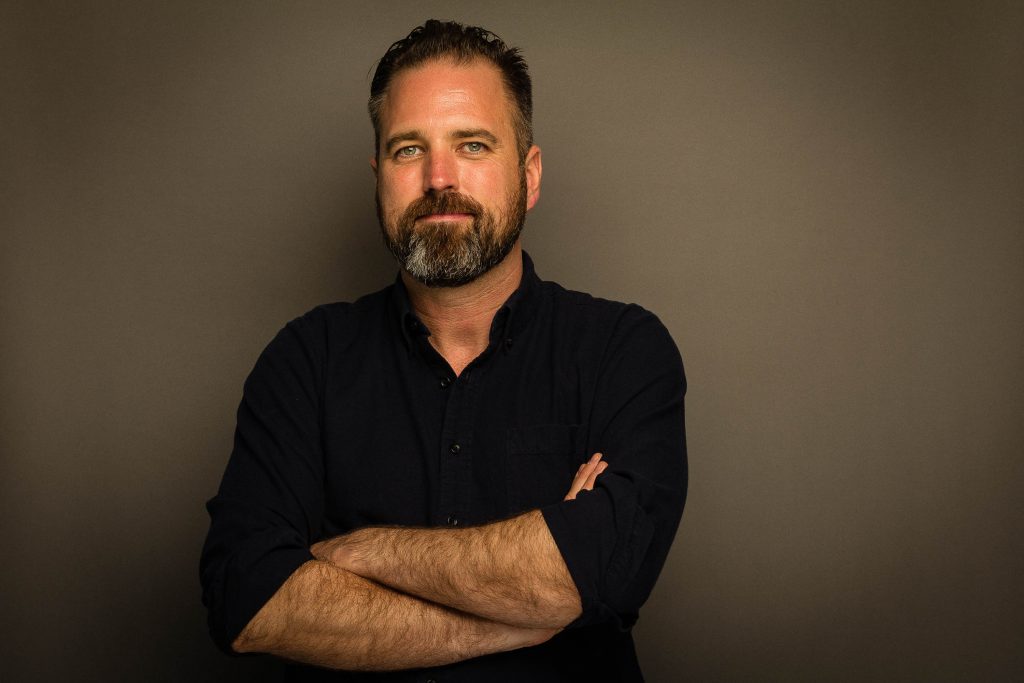
James Dooley is the owner of Dooley Media Works, a voiceover recording and video production company. When he’s not being the “friendly, yet authoritative” voice of brands like KAYAK, Dove Soap and Honey Nut Cheerios, he provides voiceover coaching and professional voiceover demo production for aspiring voice actors looking to succeed in the business.